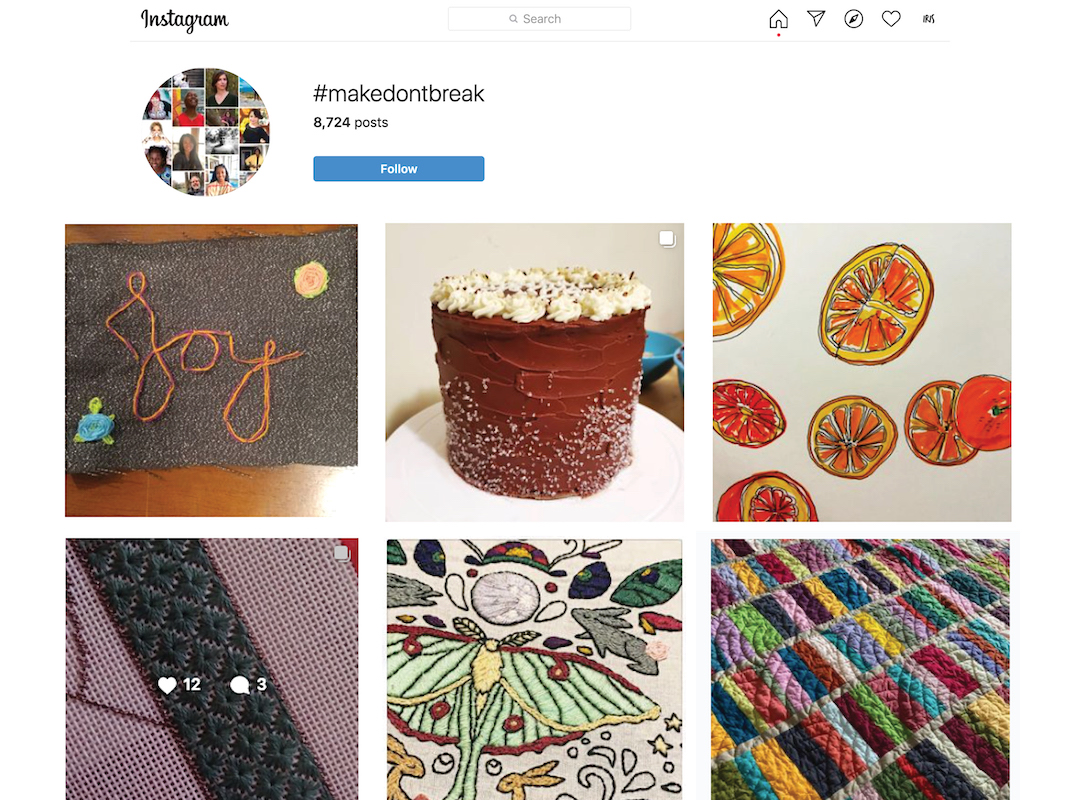
For while we have our eyes on the future,
history has its eyes on us.
This is the era of just redemption
we feared at its inception.
We did not feel prepared to be the heirs
of such a terrifying hour
but within it we found the power
to author a new chapter.
To offer hope and laughter to ourselves.
from “The Hill We Climb” by Amanda Gorman
Among the many social media memes circulating after last week’s Inauguration were toasts to the rainbow array of coats worn by a cohort of powerful women (including Kamala Harris, Michelle Obama, and Jill Biden), celebrations of Bernie Sanders’ mittens – and graphic after graphic highlighting pearls of wisdom from Amanda Gorman’s poem, “The Hill We Climb.” After a long, hard 2020, in which social challenges we’ve been grappling with for decades – centuries – were amplified, our collective need for some joy and light and playfulness was clear in the response to the ceremony.
Following the declaration that President Biden and Vice President Harris had won the election, pictures of little girls wearing t-shirts that proudly proclaimed, “My Vice president looks like me” flooded social media. In my house, we, too, celebrated the fact that a woman had finally been elected to the second-highest office in government. So ingrained in me, though, is the sense that men occupy the highest offices that I didn’t fully absorb the significance of Justice Sotomayor swearing in Harris until I read Monica Hesse’s take:
Do you know how rare it is to see women, and especially women of color, portrayed as patriots? As the strong forces who will be in charge of defending the country from enemies? Two women, who wouldn’t have been allowed to vote when this oath was written, whose Constitution — the one Harris vowed to Sotomayor that she would protect — doesn’t even include the pronoun “she”?
That same evening, the Women’s Center hosted Austin Channing Brown as our annual speaker for the Community MLK Celebration. While we couldn’t gather around a spread of fruit and cheese, the zoom chat was lively, and Austin’s warmth welcomed us into a challenging and affirming and necessary conversation.
In welcoming everyone who attended, I wanted to honor the emotional extremes many of us are feeling right now. Factors contributing the heaviness of the past year have been enumerated often: grief at the death of over 400,000 of our fellow Americans from Covid-19, the stress of living through this pandemic, the economic fallout from the coronavirus lockdowns, the escalation of climate change concerns, and racial injustice. But these still need to be articulated, as does the relationship these things have to long-standing inequalities. The first few weeks of the new year made that clear. Ongoing work for racial justice is still threatened by the violence of white supremacy, as we experienced here in 2017 and witnessed at the Capitol Building just two weeks prior to Inauguration Day. While the dramatic shifts from one day to the next are dizzying, we can – and must – celebrate moments of joy, including the inauguration of Kamala Harris as the first woman, the first Black American, and the first South Asian American to serve as Vice President.

Among the most powerful moments of the evening was the exchange that our own Jaronda Miller-Bryant, Program Director of Engaged Scholarship, had with Austin about joy. I strongly encourage you to listen for yourself on our Max Media page, but I’ll quote a couple of key portions here. Jaronda posed the question, “And with the work that you do, my question is how do you stay engaged with this kind of work? When the road, it seems so dark.”
It resonated deeply with the audience to hear the authenticity of Austin’s admission that she doesn’t always find enough ways to just be a joyful person. We at the Women’s Center aspire to support all activists in achieving the joyful vision Austin described: “How do I just eat a burger and fries and a chocolate shake? How do I also begin to live out joy? I have great appreciation for this idea of joy as resistance. And that actually helped me access joy, right? But I also want joy just because I'm human. Because that's a part of humanity. I deserve it. I deserve to be joyful and to experience a whole range right of human emotion.”
Joy is part of the work
In my personal life, I’ve been following the craftivist movement with great interest for how it combines my artistic love of fiber and needle arts and my social justice concerns. When I saw Shannon Dooley’s #makedontbreak challenge, I leapt at the chance to enter into January with a community of others committed to “a daily, month-long, making experiment” designed to “support folks in developing a practice of making - for all of our sakes.” As Shannon so persuasively says, “people who are making seem to be doing less breaking.” The #makedontbreak challenge support comes from the online community gathering around the hashtag and the daily prompts that Shannon has commissioned from craftivists across the country.
Serendipitously, as I was preparing to write this column, a related reflection from Samira K. Mehta landed in my inbox. Samira refers to Sara Ahmed’s concept of the “feminist killjoy” and articulates the conundrum social justice activists face: “I dislike being asked to appear happy in the face of injustice. Simultaneously, I profoundly want more joy and pleasure in my life.” Fortunately for us, she has an answer – and it’s not at all surprising that it’s the same answer that Austin Channing Brown and Amanda Gorman offer: embrace the joy. Samira points us to her colleague Kristie Soares, whose research shows that “embodied joy in the present is a powerful force in creating a more equitable future […]that justice can be reconceived as something joyful, and that the joyful can reconceived as something just.” Like Mehta, I struggle with knowing that “pleasure and joy do not mean ignoring injustice, but I have a hard time pulling them off in the face of injustice.”
My interns recently joined me in working with colleagues in Oregon and Tennessee to plan a professional development offering for students working in university women’s and gender equity centers. We took advantage of working in zoom-verse to gather students with their peers across the country to build community and connections with fellow social and gender justice advocates. This Summit included a career panel, featuring recent alums of WGECs and current staff. Our own Aisha Saeed spoke about her experience offering counseling services within a Women’s Center. Aisha shared a practice that she encourages all of her clients to embrace: deliberately and thoughtfully plan a moment of joy for yourself each day, and then, in that moment, remind yourself “This is my joyful moment.”
Amanda Gorman, with her poetical gestures and her stunning canary yellow coat, urged us to offer ourselves hope and laughter. Craftivists turning thread and needle into art claim and create joy while resisting oppressive systems and ideologies that would deny humanity to all. And Jaronda and Austin offered a special encouragement to those struggling for racial justice, especially black women:
Jaronda: I love the comment about joy being an act of resistance. And when we frame it that way, we don't feel bad for enjoying. We're still working towards the cause. We are accepting Joy as something that we deserve.
Austin: Jaronda, that's exactly it. And one of the things that I tell black women everywhere I go, while I clearly need to work on myself, is that you are not a mule for racial justice. That the work of racial justice is beautiful. But you're more than your work. You are not just a chess piece, moving around a board for the cause, for the struggle. You are a whole human being who also gets to enjoy cooking or baking or needlework or ice skating, whatever it is that brings you joy, just because you are. But it's the truth, Jaronda, that my door into joy was still thinking of joy through the lens of the struggle, joy as resistance.
This is my joyful moment. What a powerful way to claim our right to joy, even as we work to create the healing that comes from justice.
_____
Excerpts from our January 20 conversation between Austin Channing Brown and Jaronda Miller-Bryant have been edited here for easier reading. View their full conversation here for an unedited version.

